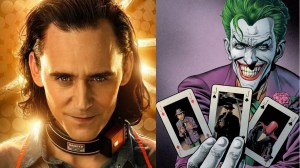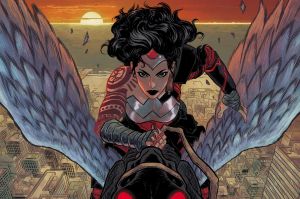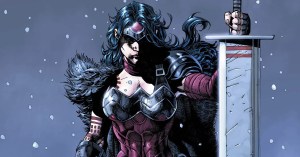When Gal Gadot was first cast in Batman v Superman: Dawn of Justice, American audiences had plenty to say: fans criticized her physique, her lack of prior big-name acting credits, and questioned whether she would be able to convincingly get into Amazonian shape in time for the movie.
Videos by ComicBook.com
What was largely absent from the conversation in the U.S. was the fact that Gadot is Israeli, something that caused a minor stir in the Middle East during the BvS theatrical run but which has really come forward as an issue as Wonder Woman has become the #1 film in the world.
In Lebanon, the film was ultimately banned — and other territories are facing bans, threats of bans, or protests as well.
A group calling itself Campaign to Boycott Supporters of Israel-Lebanon previously attempted to get Batman v Superman: Dawn of Justice banned in the country, although both that film and Gadot’s Fast & Furious appearances have made their way to theaters in the country.
In Israel, military service is mandatory for most adults, and so Gadot served before she came to the U.S. to pursue her Hollywood acting career. Even after leaving Israel for the United States, she has made comments publicly supportive of Israeli soldiers — something that has some with pro-Palestinian views feeling uncomfortable.
“I am sending my love and prayers to my fellow Israeli citizens,” Gadot posted to Facebook, along with a photograph of herself and her daughter, in 2014. “Especially to all the boys and girls who are risking their lives protecting my country against the horrific acts conducted by Hamas, who are hiding like cowards behind women and children.”

As Jordan and Tunisia consider bans of the film, there are other mini-controversies bubbling over: When our own Matt Mueller posited that Gadot’s casting amounted to the first person of color headlining a superhero movie in the current wave of Marvel and DC flicks, that debatable premise was met with a wave of dissent, including from the Forward, a Jewish newspaper, as documented in The Washington Post.
“Gal Gadot’s Wonder Woman Is White — Let’s Not Pretend Otherwise,” The Forward argued.
That conversation is arguably much more complex than either ComicBook.com or The Forwad make it sound with matter-of-fact headlines that ignore the very real debates ongoing about the nature of the Jewish identity around the world, but part of the reason that Wonder Woman has become a lightning rod for such conversations is that it is being championed as a triumph for women — a female-led blockbuster, directed by a woman, and adapting the story of one of the most important feminist icons in popular culture.
Meanwhile, there is an element of inevitability to some of the protests; Israel’s decades-long hostilities with Palestine means that people on both sides of the conflict are quick to vilify any and all actions taken by the other side.
The Post quotes Andi-Defamation League senior vice president of policy and programs Deborah Lauter as saying that “People will politicize anything connected to Israel — and the article further points out that the timing of the film’s release comes during the anniversary of Israel’s Six-Day War, which tripled the land under Israeli control, so there is already a conversation happening about the nature of Israel’s military culture.
“Everyone who has preconceived views about Israelis will project them onto the film,”said Yair Rosenberg, senior writer for Tablet Magazine. “People will use this to hang their hat on certain issues.”
Before she was Wonder Woman, she was Diana, Princess of the Amazons, trained to be an unconquerable warrior. Raised on a sheltered island paradise, when an American pilot crashes on their shores and tells of a massive conflict raging in the outside world, Diana leaves her home, convinced she can stop the threat. Fighting alongside man in a war to end all wars, Diana will discover her full powers…and her true destiny.
Wonder Woman is directed by Patty Jenkins and is written by Allan Heinberg, Geoff Johns, and Zack Snyder. The film stars Gal Gadot (Diana Prince/Wonder Woman), Chris Pine (Steve Trevor), Robin Wright (General Antiope), Connie Nielsen (Queen Hippolyta), David Thewlis, Elena Anaya, Lucy Davis (Etta Candy), Danny Huston, Ewen Bremmer, Doutzen Kroes, Samantha Jo (Euboea), Florence Kasumba (Senator Acantha), Said Taghmaoui, Eleanor Matsuura (Epione), Emily Carey (Young Diana), and Lisa Loven Kongsli (Menalippe).
Wonder Woman is in theaters now, followed by Justice League on November 17, 2017; Aquaman on July 27, 2018; Shazam on April 5, 2019; Justice League 2 on June 14, 2019; Cyborg on April 3, 2020; and Green Lantern Corps on July 24, 2020. The Flash, The Batman, Dark Universe and Man of Steel 2 are currently without a release dates.
MORE WONDER WOMAN: Diana’s Ready For War In New Play Arts Kai Figure / Wonder Woman Becomes The Most Tweeted Movie Of 2017 / Lynda Carter On Wonder Woman Box Office “Bravo”






